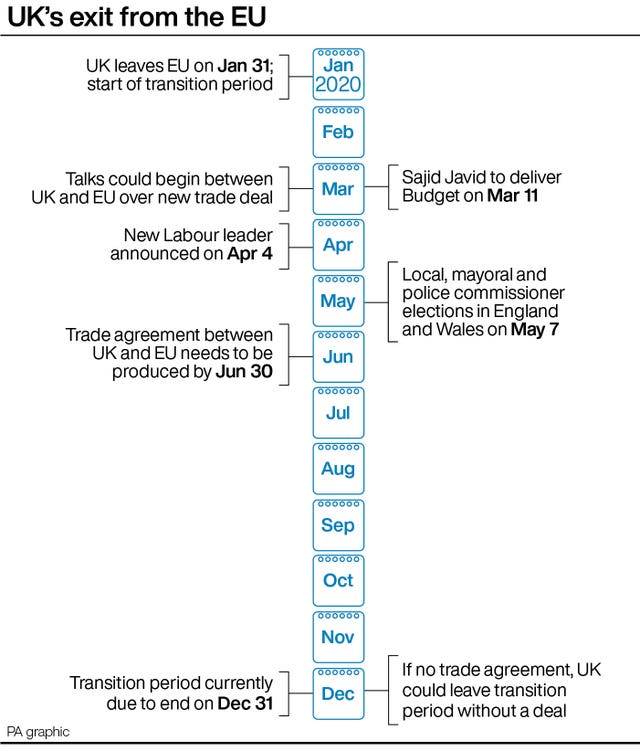The European parliament is to set the seal on Britain’s departure from the EU in a final vote on prime minister Boris Johnson’s Brexit deal.
MEPs meeting in Brussels are expected overwhelmingly to back ratification of the Withdrawal Agreement, paving the way for the UK to leave with a deal in place on Friday.
Foreign secretary Dominic Raab signed the official document ratifying the deal for the UK side, which was then taken to Brussels by Britain’s ambassador to the EU, Tim Barrow.
This morning Sir Tim Barrow, UK Permanent Representative to the EU, deposited the instrument of ratification to the @EUCouncil. This step ensures that the UK has fulfilled its legal obligations regarding our exit from the EU. pic.twitter.com/WVd3ih2V77
— UKREP 🇬🇧🇪🇺 (@ukineu) January 29, 2020
Raab said it was a “historic moment” and “the start of a new chapter for an independent, sovereign Britain, looking forward to a decade of renewal and opportunity”.
It follows the completion last week of the passage of the Withdrawal Agreement bill through the British parliament at Westminster.
The agreement settles the terms of Britain’s departure, including future citizens’ rights, the arrangements on the border in Ireland and the UK’s divorce settlement.
It also allows for an 11-month transition period, during which the UK will continue to follow EU rules while talks take place on a free trade agreement.
Johnson has said he wants a comprehensive deal – covering all aspects of Britain’s future relationship with the EU, including security – by the end of the year.
He has been adamant that he will not contemplate any extension of the transition period beyond the end of 2020.
However, senior EU figures have repeatedly warned that reaching such a wide-ranging agreement will not be possible within such a tight timetable.

They have cautioned that the UK cannot expect to enjoy the “highest quality access” to European markets if – as Johnson is insisting – it refuses to align with EU rules after Brexit.
Following the vote in the European parliament, there will be a farewell ceremony for the British MEPs leaving for the last time.
Meanwhile, Johnson, in the latest sign that he is using social media to directly talk to voters, posted a typically rambling video answering some frequently-asked Brexit questions.
“Will Brexit affect my holiday?”
I’ve answered some of your top searched questions about Brexit and what happens when we leave the EU on Friday. pic.twitter.com/3LelRgfFPb
— Boris Johnson (@BorisJohnson) January 28, 2020
One of the questions asked was “Will Brexit affect my holiday?”, to which the prime minister replied “No, not at all, you’ll have a fantastic holiday”.
While the terms of the Brexit deal mean that there will be few changes on 1 February, anyone planning a holiday in 2021 still faces major uncertainty as issues including driving permits, insurance and health cover will need to be resolved in the UK-EU talks.
In Brussels, Brexit Party leader Nigel Farage said he would miss being the European parliament’s “pantomime villain” ahead of his final speech and the vote on the Withdrawal Agreement.
He claimed Brexit was a “victory for grassroots campaigning” in the face of opposition from the “entire UK establishment”.
“I’m going to be celebrating the fact that democracy and the will of the people has triumphed at 11 o’clock this Friday,” he said.


















